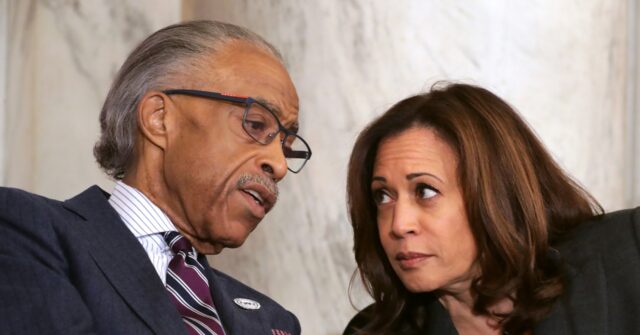In a startling revelation, a significant controversy has emerged surrounding Al Sharpton, a contributor to MSNBC, and his financial dealings with the Kamala Harris campaign. The Harris campaign made a substantial donation of $250,000 to Sharpton’s non-profit organization, the National Action Network, in September 2020, which was later increased to $500,000 in October. Following this financial transaction, Sharpton conducted a highly favorable interview with Harris on MSNBC, raising concerns about ethical standards and potential conflicts of interest within the network. A spokesperson for MSNBC claimed ignorance of the donations made to Sharpton’s organization, yet the scandal has sparked debates over the integrity of journalism and the role of financial influences in media.
Despite the dismissive attitude from some network executives, reports suggest that there exists a level of unease among MSNBC staff regarding the implications of these donations. Anonymous insiders have expressed their discomfort, observing that the situation has a “dirty feel” and conveys a sense of moral compromise within the organization. They argue that such financial dealings undermine the credibility of journalism, as it raises suspicions about whether there is a quid pro quo arrangement, effectively transforming journalistic pursuits into pay-for-play transactions. These staffers feel that the monetary exchanges undercut the core values of journalism, leaving them frustrated and disappointed.
The conversation surrounding the ethical breaches highlighted by this incident points towards a broader narrative of media disintegration in the contemporary landscape. Critics argue that networks like MSNBC and CNN operate under a systemic pay-to-play model where sensationalism and misinformation are traded for profitability and influence. Anchors and contributors are often incentivized to maintain a specific narrative, compromising journalistic integrity. This financial model has incited criticism that media institutions prioritize profit over truth, leading to a loss of public trust in news outlets.
However, the issue transcends mere scandal. It delves into the fundamental question about the operational ethics of media organizations that label themselves as news entities. Critics contend that when an organization fails to hold itself accountable to the standards of journalism, it inadvertently participates in a detrimental cycle of disinformation and deception. This scenario raises critical implications for the public’s understanding of important issues, revealing how profit-driven agendas can skew perceptions and narratives to serve particular interests rather than the truth.
Those who work within these media organizations may express outrage over abuses of power or ethical violations, but detractors argue that the mere act of continuing employment in such environments suggests complicity. The harsh reality is that those within the media landscape may be reluctant to acknowledge the pervasive corruption for fear of losing their status or access. This systemic issue makes it difficult for them to claim that a line has been crossed, especially when they are entangled in an ecosystem rife with ethical breaches, where financial transactions often dictate the integrity of journalistic practices.
Conclusively, the Al Sharpton payola scandal encapsulates the ongoing crisis of credibility facing modern journalism. The revelation of significant financial exchanges between a political campaign and a media figure raises serious questions about the sanctity and reliability of news reporting. As the narrative around the ethics of media continues to unfold, it underscores the necessity for a critical reassessment of how journalism is financed and conducted. Moreover, it invites reflection on the principles that can restore integrity and accountability in the industry, promoting a media landscape that genuinely serves the public interest rather than being beholden to financial entanglements and political affiliations.

